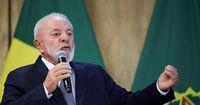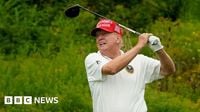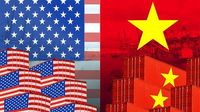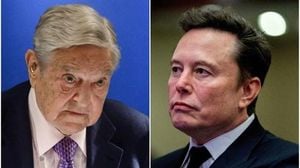As the world braces for what U.S. President Donald Trump has dubbed "Liberation Day in America!!!" on April 2, 2025, Vietnam finds itself in a precarious position. The impending announcement of reciprocal tariffs on trading partners follows Trump's recent imposition of 25% import taxes on foreign carmakers. This move has raised concerns about the potential impact on Vietnam, which has the third-largest trade deficit with the U.S., trailing only China and Mexico.
Vietnam's Prime Minister, Pham Minh Chinh, has expressed a willingness to engage in what could be termed "golf diplomacy." During a meeting in January, he humorously suggested that he would visit Trump's Mar-a-Lago estate in Florida and "golf all day long" if it would benefit Vietnam. This light-hearted remark may not be as far-fetched as it seems, given the Trump Organization's plans to invest billions in golf courses and real estate in Vietnam, including a residential complex featuring three 18-hole golf courses, set to break ground in May 2025.
Despite Trump's past criticisms of Vietnam—calling it "worse than China"—the country has managed to maintain a relatively stable trade relationship with the U.S. Analysts suggest that while Vietnam's efforts to engage with Washington have been commendable, they may not be sufficient to avoid the looming tariffs. Stephen Olson, a former U.S. trade negotiator, remarked, "The Vietnam PM seems to be taking a page from the book of [former Japanese PM] Shinzo Abe, who built a close personal relationship with Trump over their shared love of golf." However, he added that personal relationships might not shield Vietnam from the tough trade policies Trump is known for.
In a bid to mitigate the potential fallout from U.S. tariffs, Vietnam has announced plans to increase its imports from the U.S. and has already begun reducing tariffs on several American products. On March 26, 2025, Vietnam's Ministry of Finance revealed a decree that would lower tariffs on liquefied natural gas (LNG), automobiles, ethanol, and ethane. These reductions are part of a broader strategy to enhance Vietnam's trade competitiveness and demonstrate its commitment to fair trade practices.
Recent agreements between Vietnamese and U.S. companies have also been signed, totaling more than $54 billion. This includes contracts for machinery, equipment, and services, as well as significant purchases related to aviation and energy sectors. The cumulative value of trade agreements between the two nations is projected to reach $90.3 billion, which could generate hundreds of thousands of jobs for workers in both countries.
Meanwhile, Brazil's President Luiz Inacio Lula da Silva is also eyeing Vietnam as a potential market for Brazilian products. During a visit on March 28, 2025, Lula recognized Vietnam as a market economy and discussed opportunities for collaboration, including the possible sale of Embraer planes and the establishment of a meat processing hub in the country. Lula's invitation for Vietnam to attend the BRICS summit in Brazil later this year further indicates the growing ties between the two nations.
Vietnam is under pressure from the Trump administration to reduce its trade surplus, which surged to a record over $123 billion in 2024, marking a nearly 20% increase from the previous year. The Vietnamese government has pledged to enhance imports from the U.S., particularly in agricultural products like soybeans, where Brazil is a leading exporter.
In a media conference, Vietnamese President Luong Cuong stated that Vietnam is "seriously considering" allowing Brazilian beef into the country, which could attract investment from Brazilian meat packers. This potential opening of the Vietnamese market may lead to the establishment of a meat-processing plant by Brazilian food giant JBS in northern Vietnam, marking its first venture in Asia.
As the deadline for Trump's tariff announcement approaches, Vietnam's leadership is actively seeking to balance its trade relations. The government has emphasized its commitment to maintaining a robust partnership with the U.S. while navigating the complexities of global trade dynamics.
Moreover, the recent approval for SpaceX to operate its Starlink satellite internet service in Vietnam reflects the country's willingness to engage with American technology firms. This trial period, which will extend until the end of 2030, allows for 600,000 subscribers and positions Vietnam as a potential hub for advanced technology services.
As Vietnam continues to explore opportunities for economic cooperation, it remains cautious about the implications of U.S. tariffs. The upcoming tariffs could have significant repercussions for U.S. businesses operating in Vietnam, including tech giants like Apple and Intel, which have relocated production lines from China to the Southeast Asian nation.
In conclusion, Vietnam's proactive measures to improve trade relations with the U.S. and its openness to partnerships with Brazil indicate a strategic approach to navigating the current global trade landscape. However, the real test will come on April 2, when the full impact of Trump's tariff policies will be revealed, potentially reshaping Vietnam's economic landscape for years to come.






